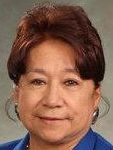 Who: Rep. Adrienne Benavidez, D-Brighton. Top priorities: 1) Jail overcrowding 2) Tax reform 3) Bond reform Transportation thoughts: “I hope that we will be able to, but I don’t think it will be possible because there are such disparate views on both sides of the aisle. I’m not sure those can come together.” Other thoughts: 1) Everyone should have access to healthcare. 2) Need to address recidivism. Email: Click here. Phone: 303-866-2964.
Who: Rep. Adrienne Benavidez, D-Brighton. Top priorities: 1) Jail overcrowding 2) Tax reform 3) Bond reform Transportation thoughts: “I hope that we will be able to, but I don’t think it will be possible because there are such disparate views on both sides of the aisle. I’m not sure those can come together.” Other thoughts: 1) Everyone should have access to healthcare. 2) Need to address recidivism. Email: Click here. Phone: 303-866-2964.DENVER — As the second regular session of the 71st General Assembly gets underway today, it’s clear what is on the mind of most legislators, regardless of political party — transportation, Public Employee Retirement Association (PERA), energy and education finance.
How legislators come together on those issues may be the bigger question. Both parties have their own way of doing things, and in an election year, some think it might be harder to find the answers.
Rep. Lori Saine, R-Firestone, said she is trying to remain optimistic that the off season troubles of some lawmakers combined with it being an election year won’t get in the way of their duties.
“I’m hoping we can actually get the work done for the people,” Saine said. “And resolve the problem in a way that it won’t happen again.”
Eight legislators, two Democrats and two Republicans from each chamber of the State House spoke to Complete Colorado reporter Sherrie Peif about what they’d like to accomplish, what they think they can accomplish, and what they think is likely to go up in flames.
 Who: Rep. Perry Buck, R-Windsor. Top priorities: 1) Transportation 2) Stop-loss health reform. Transportation thoughts: “I can’t tell you how many times they (Democrats) look at me and say, ‘No we can’t do it without increased funds’ It’s almost like it’s a recorded message.” Other thoughts: “If we don’t prioritize what the role of government is, which is education and transportation, what have we done. We do have a surplus and I think every penny should go to transportation. Email: Click here. Phone: 303-866-2907.
Who: Rep. Perry Buck, R-Windsor. Top priorities: 1) Transportation 2) Stop-loss health reform. Transportation thoughts: “I can’t tell you how many times they (Democrats) look at me and say, ‘No we can’t do it without increased funds’ It’s almost like it’s a recorded message.” Other thoughts: “If we don’t prioritize what the role of government is, which is education and transportation, what have we done. We do have a surplus and I think every penny should go to transportation. Email: Click here. Phone: 303-866-2907.The mix of party leaders, freshmen legislators, men and women shared how they’d like to handle Colorado’s transportation woes, their thoughts on the last-minute passage of Senate Bill 267 last year and the Special Session it created, what bills or issues are most important to them, and whether or not the off-session sexual harassment allegations among some of their colleagues will be a distraction.
“Transportation, transportation, and transportation” — that’s how Rep Perry Buck, R-Windsor sees the next 120 days being prioritized.
Buck said the same bill she ran last year that would have asked voters to take on new bond debt to be paid back with 10 percent of the existing sales tax revenues will be back this year. However, her bill last year was killed in committee, so she said it will start in the Senate this year as one of its top three bills.
“It uses general fund money to pay back the bonds,” Buck said. “It’s a no brainer. We have money in the coffers, and until the state does what it’s supposed to do and says transportation is a priority, we’ll just keep spending money on stupid stuff.”
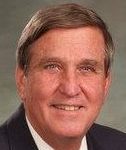 Who: Sen. John Cooke, R-Greeley. Top priorities: 1) Transportation 2) Victims rights to know inmate location 3) Swatting reform Transportation thoughts: “If the roads and bridges are a priority for the public then I think they would be willing to vote for (bonds). We’re not asking for a tax increase. It’s put the job back onto us where it belongs to prioritize. There are no cuts in any other area.” Other thoughts: “We’re not fans of mass transit because it’s very metro-Denver-centric. RTD’s budget is higher than CDOT and only 3 percent of the people in the state use it. What they are trying to do is social engineering.” Email: Click here. Phone: 303-866-4451.
Who: Sen. John Cooke, R-Greeley. Top priorities: 1) Transportation 2) Victims rights to know inmate location 3) Swatting reform Transportation thoughts: “If the roads and bridges are a priority for the public then I think they would be willing to vote for (bonds). We’re not asking for a tax increase. It’s put the job back onto us where it belongs to prioritize. There are no cuts in any other area.” Other thoughts: “We’re not fans of mass transit because it’s very metro-Denver-centric. RTD’s budget is higher than CDOT and only 3 percent of the people in the state use it. What they are trying to do is social engineering.” Email: Click here. Phone: 303-866-4451.The Senate version is co-sponsored by Sen. John Cooke, R-Greeley and Sen. Randy Baumgardner, a Republican out of Northwestern Colorado.
Cooke said the bill would bond $3 or $4 billion to fix Colorado’s roads and bridges. It would also repeal a part of Senate Bill 17-267 that used COPs to fund highways in rural Colorado.
Cooke said the idea of asking voters for a tax increase with revenue forecasted to be about $1 billion more than last year is ridiculous.
“That’s how they did T-Rex,” Cooke said. “If it’s good enough for Denver, it’s good enough for the rest of the state. When you have a billion dollars in new revenue, how can you justify to the public that you want to raise taxes.”
Not everyone agrees, however. Rep. Dave Young, D-Greeley, who serves on the Joint Budget Committee, says it’s not that simple.
“If a person actually came and sat day in and day out on the Joint Budget Committee, and witnessed everyone that is making proposals and requests for funding, I think people would have a better view point that our budget is in crisis.”
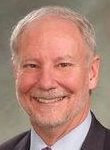 Who: Rep. Dave Young, D-Greeley. Top priorities: 1) Joint Budget Committee 2) K-12 Finance, including at-risk students and finance formula reform. Transportation thoughts: “The Joint Budget Committee tries to be a role model for the rest of the legislature to say ‘Hey, there’s politics but there is also governance.’ At the end of the day people have sent us to the capitol to govern, and that means that we actually have to work together to get things done.” Other thoughts: “There is real inequity in school finance around the state.” On finance formula reform: “It’s a student-centered finance model because it changes the whole conversation around what do students need to really be successful?” Email: Click here. Phone: 303-866-2929.
Who: Rep. Dave Young, D-Greeley. Top priorities: 1) Joint Budget Committee 2) K-12 Finance, including at-risk students and finance formula reform. Transportation thoughts: “The Joint Budget Committee tries to be a role model for the rest of the legislature to say ‘Hey, there’s politics but there is also governance.’ At the end of the day people have sent us to the capitol to govern, and that means that we actually have to work together to get things done.” Other thoughts: “There is real inequity in school finance around the state.” On finance formula reform: “It’s a student-centered finance model because it changes the whole conversation around what do students need to really be successful?” Email: Click here. Phone: 303-866-2929.Young said he agrees that transportation is stressed out, but said so is K-12 and higher education.
“So is our health care systems, so is our correctional systems,” Young said. “They are all struggling mightily with a tremendous lack of resources. The refrain, there is plenty of money within the budget we just have to prioritize our spending, is a nice catchphrase, but when you actually sit and go through the budget line-by-line, it doesn’t really play out all that well.”
Senate Majority Leader Christ Holbert remains confident legislators will get something done.
“We have an increased budget,” Holbert said. “We have increased funding for K-12. We can do that again, and I really encourage folks in the House or anywhere to avoid having this conversation that we’re taking money from any other need in the state budget because it isn’t allocated yet. The legislature needs to be better at being the allocators.”
Senate President Kevin Grantham, R-El Paso said the state is in a unique position this year that they can meet all the needs without tax increases. To do otherwise would be irresponsible, he said.
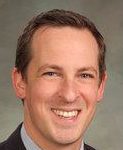 Who: Sen. Stephen Fenberg, D-Boulder. Top priorities: 1) Residential energy battery storage 2) Parks and wildlife 3) Election access for inmates awaiting trial and released inmates’ civil rights training. Transportation thoughts: “I’m hopeful we’ll continue to have conversations that will result in a ballot measure that will give voters the ability to weigh in on how they want to fund it. If we don’t as a legislature, I think it will happen one way or another through special interest groups.” Other thoughts: “Fundamentally we are under-funding education. Need to fund the deficit we’ve cut through the negative factor and higher ed. We are paying for the future on the backs of our students.” Email: Click here. Phone: 303-866-4872.
Who: Sen. Stephen Fenberg, D-Boulder. Top priorities: 1) Residential energy battery storage 2) Parks and wildlife 3) Election access for inmates awaiting trial and released inmates’ civil rights training. Transportation thoughts: “I’m hopeful we’ll continue to have conversations that will result in a ballot measure that will give voters the ability to weigh in on how they want to fund it. If we don’t as a legislature, I think it will happen one way or another through special interest groups.” Other thoughts: “Fundamentally we are under-funding education. Need to fund the deficit we’ve cut through the negative factor and higher ed. We are paying for the future on the backs of our students.” Email: Click here. Phone: 303-866-4872.
“We are in a situation that we have revenue that leaves us without an excuse,” Grantham said. “We’re in a position that I haven’t seen since I’ve been here. We’re in a position that I haven’t seen since I’ve been paying attention. Having the money and then not doing it would not be a good way to finish this session.”
Sen. Stephen Fenberg, D-Boulder agreed with Young, adding Colorado’s transportation problems will not go away without an additional revenue stream.
“There is no question we have to do something,” Fenberg said. “We have a system that is not prepared or ready for the population we have, or the population that’s coming. At the end of the day, whether we like it or not, we need more revenue. We’re not going to be able to find money in the budget to fix the problem in this session.”
Legislators are also going into the session with the unknown surrounding the recording error in SB-267 — dubbed the Sustainability of Rural Colorado bill. The one issue, perhaps more than any other, polarizes the two parties.
SB-267 reclassified the Hospital Provider Fee into an enterprise fund, opening up more than $500 million of cap space for possible new spending. It injected money into hospitals, schools and infrastructure in rural Colorado.
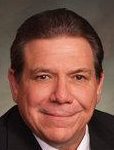 Who: Sen. Ray Scott, R-Grand Junction. Top priorities: 1) Transportation 2) Rural broadband access 3) Energy office 4) 811 call before you dig reform Transportation thoughts: “If we can commit a couple hundred million a year out of the general fund there is no way they can’t pay down the bonds. It’s not our job to figure out the project list. It’s our job to get the funding figured out. There are other people to worry about where it goes.” Other thoughts: On sexual harassment charges and distraction: “I really hope it’s not, but I fear it’s going to be difficult to keep the political radials in place. We have a process, and I think we all need to let that process work. Email: Click here. Phone: 303-866-3077.
Who: Sen. Ray Scott, R-Grand Junction. Top priorities: 1) Transportation 2) Rural broadband access 3) Energy office 4) 811 call before you dig reform Transportation thoughts: “If we can commit a couple hundred million a year out of the general fund there is no way they can’t pay down the bonds. It’s not our job to figure out the project list. It’s our job to get the funding figured out. There are other people to worry about where it goes.” Other thoughts: On sexual harassment charges and distraction: “I really hope it’s not, but I fear it’s going to be difficult to keep the political radials in place. We have a process, and I think we all need to let that process work. Email: Click here. Phone: 303-866-3077.Critics of the bill blame a rush to pass the bill in the waning minutes of the 2017 session as the reason RTD and other special taxing districts were left out of the revenue sharing, forcing a special session that did nothing but cost taxpayers roughly $50,000 because Republicans refuse to reinstate the tax, saying it’s unconstitutional.
Buck said her opinion on the matter hasn’t changed.
“We told them once, and we’ll do it again,” she said about rewriting 267 without sending it to the voters.
Sen. Ray Scott, R-Grand Junction agreed, adding coming from a rural area, RTD isn’t a priority for him anyway.
“RTD doesn’t mean anything to me,” Scott said. “My constituents, they could care less. I have to go back to them and justify why I would vote for something like that over more funding for higher ed or better ratio for K-12 for per pupil spending. I can’t let the emotional stuff for that kind of stuff get in the way.”
Rep. Adrienne Benavidez, D-Brighton thinks there is some hope for the fixing the mistake; however, she thinks it all depends on Senate leadership.
“Politics is compromise,” she said. “I’m hopeful that leadership can come to some compromise. I think if it would have gotten to the floor in the senate, it may have passed. It’s going to take leadership to figure out where to assign that kind of change.”
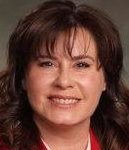 Who: Rep. Lori Saine, R-Firestone. Top priorities: 1) Transportation 2) Ground water issues 3) Tort reform Transportation thoughts: “Should be priority number one. The penalty for us not doing that is every citizen on the road pays for that in their time and money. We are economically constraining ourselves, there are companies that won’t move here because of our roads.” Other thoughts: “The one thing the state government should and could do is balance their checkbook. That is what TABOR was designed to help us do. There are things we would like to have, but we need to spend on the things we need to have first.” Email: Click here. Phone: 303-866-2906.
Who: Rep. Lori Saine, R-Firestone. Top priorities: 1) Transportation 2) Ground water issues 3) Tort reform Transportation thoughts: “Should be priority number one. The penalty for us not doing that is every citizen on the road pays for that in their time and money. We are economically constraining ourselves, there are companies that won’t move here because of our roads.” Other thoughts: “The one thing the state government should and could do is balance their checkbook. That is what TABOR was designed to help us do. There are things we would like to have, but we need to spend on the things we need to have first.” Email: Click here. Phone: 303-866-2906.Sen. John Kefalas, D-Fort Collins said lawmakers have a fiduciary duty to fix it.
“We have a responsibity to address the glitch in the wording,” Kefalas said. “It is not chump change they are missing.”
Holbert said it’s simple, supporters need to get 33 legislators in the House and 18 in the Senate to believe what they are agreeing to is constitutional, and if they do, it passes.
“That doesn’t mean that the remedy is constitutional,” Holbert said. “A plain reading of TABOR says anything that causes an increase in revenue — and yes I understand it’s just putting it back where it should have been — but there was a decrease. There was a policy change that caused a decrease; now we need another tax policy change to cause an increase.”
Most everyone did agree that there may be too many distractions this session to be successful. From being an election year to off season sexual harassment charges, they all said there could be anything from minor awkwardness to disruption.
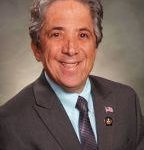 Who: Sen. John Kefalas, D-Fort Collins. Top priorities: 1) Free standing emergency department reform 2) Human trafficking of minors 3) Suicide prevention 4) Workforce development for persons with disabilities. 5) Affordable housing. Transportation thoughts: “I think there needs to be a commitment to see if there are additional funds that may be available in the budget, especially with the December revenue forecast and dedicating some of those funds to transportation.” Other thoughts: On SB-267: “We have a responsibility to address the glitch in the wording. That is not chump change. We have a fiduciary duty and responsibility to address it.” Email: Click here. Phone: 303-866-4841.
Who: Sen. John Kefalas, D-Fort Collins. Top priorities: 1) Free standing emergency department reform 2) Human trafficking of minors 3) Suicide prevention 4) Workforce development for persons with disabilities. 5) Affordable housing. Transportation thoughts: “I think there needs to be a commitment to see if there are additional funds that may be available in the budget, especially with the December revenue forecast and dedicating some of those funds to transportation.” Other thoughts: On SB-267: “We have a responsibility to address the glitch in the wording. That is not chump change. We have a fiduciary duty and responsibility to address it.” Email: Click here. Phone: 303-866-4841.
“Just the distraction of the 2018 election could prevent us from having a successful session,” Benavidez said. “Many will be making sure their views are heard by voters. There may be a bit of posturing.”
Sen. John Kefalas, D-Fort Collins, agreed. He said a multitude of things may be a factor this session.
“Because it’s an election year, because of all the uncertainty and dysfunction at the federal level, the issue of sexual harassment, that will be another layer,” said Sen. John Kefalas, D-Fort Collins. “All of those things are going to provide distractions.”
Cooke said he doesn’t think it will be a big distraction, just a different feeling.
“There’s a lot of factors going into this session,” Cooke said. “I think it’s just going to be a different atmosphere.”


